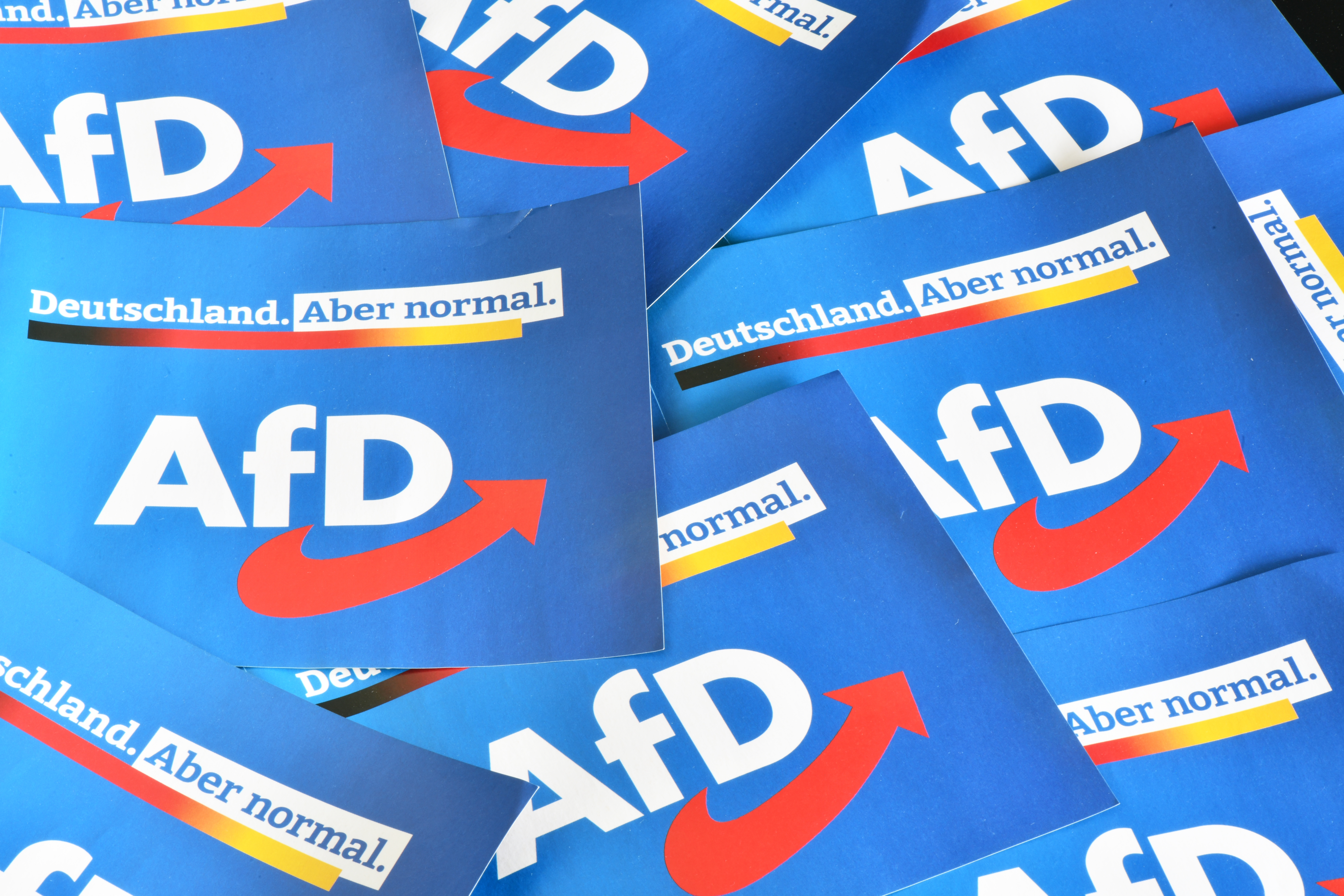Germany’s drift towards fascism seems to be gathering pace as support for the far-right, Islamophobic Alternative for Germany (AfD) party has reached unprecedented proportions.
Support for the AfD has reached 22%, according to an opinion poll by the INSA, conducted for the daily newspaper Bild.
The poll showed the Christian Democratic Union is currently leading the polls at 26%, with all the other parties trailing behind including Chancellor Olaf Scholz’s Social Democratic Party on 18%, The Greens at 14%, the Free Democratic Party at 7%, and The Left party at 5%.
Speaking to Bild on the AfD’s rise, INSA Director Hermann Binkert said there was a mere 4% gap between the far-right party and the Christian Democratic Union. “The gap has never been that minor,” he added.
INSA surveyed 1,266 voters between July 17 and July 21. The poll has a tolerance of plus or minus 2.9 percentage points, according to the public-opinion researcher.
The AfD is a right-wing populist party founded in 2013. It has gained significant support by positioning itself as a Eurosceptic and anti-immigration party, and has been known to use strong anti-Islam rhetoric in its political discourse.
Party members have made controversial statements linking Islam with terrorism, crime, and the erosion of German culture and values. They have often criticised Germany’s immigration policies, especially in relation to migrants from Muslim-majority countries.
Subscribe to our newsletter and stay updated on the latest news and updates from around the Muslim world!
The party advocates for stricter immigration controls, particularly for people coming from Muslim-majority countries. The AfD argues that Muslim immigrants do not assimilate into German society and pose a threat to the country’s security and cultural identity.
Some members of the AfD have called for bans on Islamic symbols, such as minarets, hijabs and burqas, in public spaces. They argue that these symbols are incompatible with German values and culture.
The AfD has proposed increased surveillance of mosques and Muslim communities, claiming that there may be links between some mosques and radical “Islamist” groups.
The party is also critical of multiculturalism and the idea of a diverse society. They argue that the coexistence of different cultures, particularly Islamic culture, threatens social cohesion and leads to parallel societies.
The poll comes a month after a German government-commissioned report found that a hostile attitude toward Muslims is widespread in large sections of German society and its manifestations – hatred and violence – are an everyday reality.
The Independent Expert Panel on Hostility against Muslims report, “Islamophobia — A German Balance Sheet,” found that Muslims are “one of the most pressured minorities” in Germany, and issued recommendations to political leaders, police, teachers, the media and the entertainment sectors.
Germany has a Muslim population of around 5.5 million, largely due to immigration from predominantly Muslim countries and the presence of Turkish guest workers who arrived in the 1960s and 1970s.
According to the Commission:
- Muslims born in Germany are widely viewed as “foreign.”
- Islam is often portrayed as a “reactionary religion” by the media.
- 90% of the films viewed by the committee presented a negative view of Muslims, often linking them to “terrorist attacks, wars, and oppression of women.”
- Women who wear the hijab face “hostility in dramatic forms.”
The committee recommended that the government form a working group to address prejudice against Muslims and set up a centre to review complaints.























